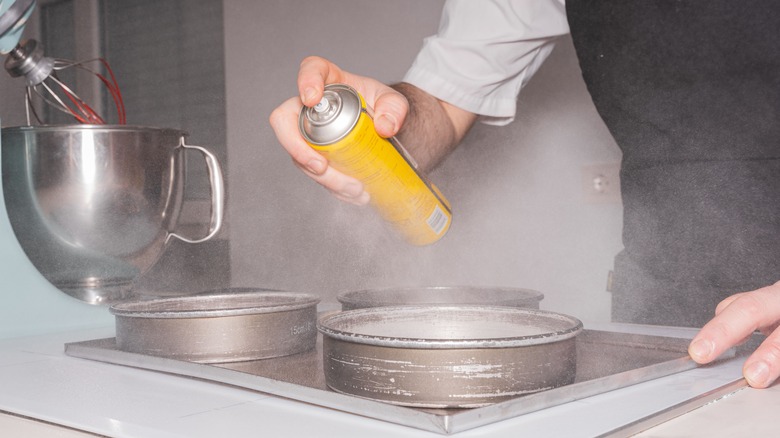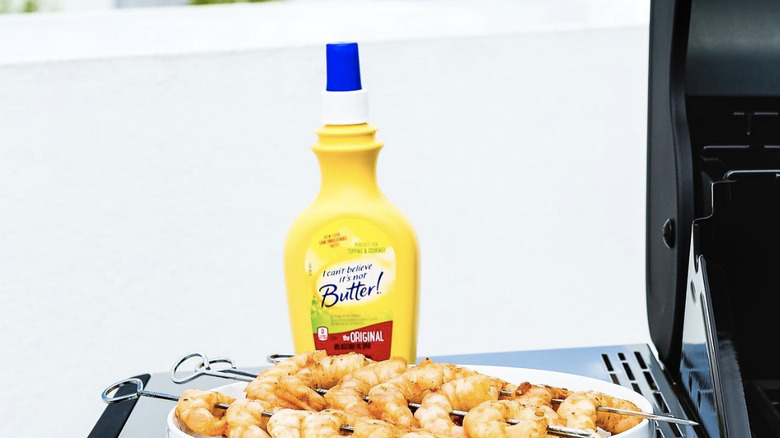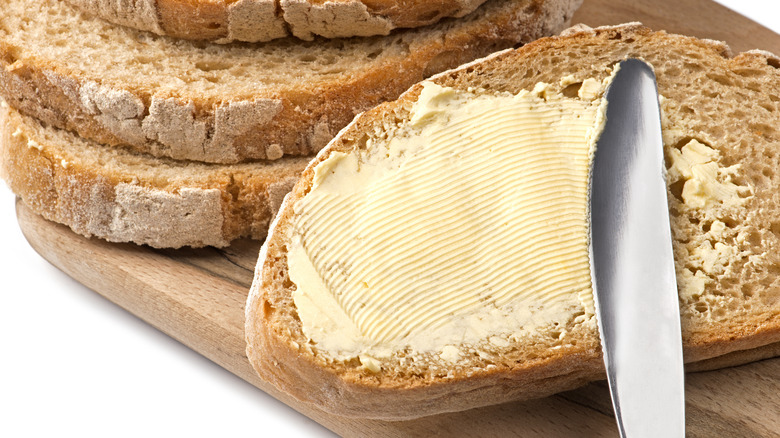Is Spray Butter The Real Deal?
Everything tastes better with a little butter, no matter the type. But when you have a stick that has been sitting in your refrigerator for a while, it's not exactly the easiest thing to spread. For that reason, people once turned to spray butter, which essentially claimed to taste just like butter but was sold in a spray bottle rather than in stick form. The concept was simple: No more difficult spreading. Truth be told, though, spray butter is not real butter. The dairy spread is made by churning milk or cream until it becomes a solid. On the other hand, spray butter's main ingredient is vegetable oil.
Since spray butter is made with a liquid oil, it's much easier to aerosolize than butter, which rehardens into a solid even after it's been melted. To some, spray butter's pros outweigh its cons (it's also lower in calories and fat than butter), but it will never exactly be the real deal.
Spray butter is made with soybean oil
If soybean oil sounds familiar, that's because it's actually the main ingredient in a lot of store-bought mayonnaise. It gives the spray butter that fatty, rich flavor — but in the form of a liquid, making it easier to use. I Can't Believe It's Not Butter, for example, actually explains right on the front of the bottle that their main ingredient isn't butter at all; it says "40% vegetable oil spray," with the veggie being soybeans.
While spray butter isn't real butter, it's also not dairy-free, so be careful if you have an allergy. It contains sweet cream buttermilk, which helps add richness to the product and give it that signature butter flavor we know and love (though artificial flavoring also helps). The two ingredients are blended with water, then combined with a few other ingredients like lactic acid and beta carotene, the latter of which lends it butter's yellowish hue.
Is spray butter still available?
You may be surprised to learn that spray butter is still on the market. With that said, it's not nearly as popular as it once was. While available in almost any major grocery store, considering that it's not dairy-free (and that fad diets have changed so much since it was popular decades ago), it probably doesn't have as significant of a place in the market as it once did. People have learned to embrace everything in moderation, whereas spray butter was meant to be a calorie-free alternative to something we all know and love.
If you frequently use butter, then your best bet for that true butter flavor is to just leave the butter at room temperature (but note that unsalted butter doesn't keep as well as salted butter). The USDA says this is perfectly safe, as long as you use the butter within two days. You can always leave one or two tablespoons out at a time, meaning you'll regularly have perfectly spreadable butter without the concern of it going bad.


